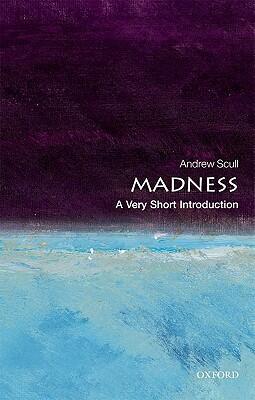
Madness: A Very Short Introduction by Scull, Andrew (2011) Paperback
door
Andrew Scull
Nog geen beoordelingen
History
Poetry
Health & Wellness
+1
more
Formaat
Paperback
Pagina's
152
Taal
Engels
Gepubliceerd
Jan 1, 2011
Uitgever
Oxford University Press
Editie
1st
ISBN-10
0199608032
ISBN-13
9780199608034
Beschrijving
Andrew Scull delves into the multifaceted nature of madness, exploring how society's understanding and treatment of mental illness have evolved over time. Through a lens that combines historical inquiry with cultural context, he illustrates the diverse responses to what has been deemed madness across various societies. Scull's insights not only highlight the stigma and misconceptions associated with mental health but also shed light on moments of compassion and progress.
The narrative traverses different epochs, revealing how societal attitudes toward mental illness have been shaped by prevailing cultural norms and scientific advancements. Scull’s examination spans from ancient civilizations to modern-day practices, addressing the ever-changing definitions and perceptions of madness. His approach argues for a nuanced understanding rather than a one-dimensional view, showcasing the complexities inherent in diagnosing and treating mental disorders.
Readers are introduced to various key figures in the history of psychiatry, as well as movements that have sought to reform and redefine what madness means. Scull raises thought-provoking questions about agency, identity, and the often-blurred lines between sanity and insanity, urging readers to reflect on their own beliefs and biases regarding mental health.
This exploration of madness emphasizes its social construction and challenges readers to reconsider their perspectives. In a world where mental health issues are increasingly prevalent, Scull's work is both timely and essential, fostering a deeper understanding of the intricate relationship between society and the concept of madness.
The narrative traverses different epochs, revealing how societal attitudes toward mental illness have been shaped by prevailing cultural norms and scientific advancements. Scull’s examination spans from ancient civilizations to modern-day practices, addressing the ever-changing definitions and perceptions of madness. His approach argues for a nuanced understanding rather than a one-dimensional view, showcasing the complexities inherent in diagnosing and treating mental disorders.
Readers are introduced to various key figures in the history of psychiatry, as well as movements that have sought to reform and redefine what madness means. Scull raises thought-provoking questions about agency, identity, and the often-blurred lines between sanity and insanity, urging readers to reflect on their own beliefs and biases regarding mental health.
This exploration of madness emphasizes its social construction and challenges readers to reconsider their perspectives. In a world where mental health issues are increasingly prevalent, Scull's work is both timely and essential, fostering a deeper understanding of the intricate relationship between society and the concept of madness.
Recensies
Nog geen beoordelingen
Wees de eerste om dit boek te recenseren en deel je gedachten
Voeg Eerste Recensie ToeLeeslogboek
Geen leeslogboeken gevonden
Begin met het volgen van je leesvoortgang om logboeken hier te zien
Voeg je eerste leeslogboek toeNotities
Geen notities gevonden
Begin met het toevoegen van notities om ze hier te zien
Voeg je eerste notitie toeTransactielogboek
Geen transactielogboeken gevonden
Begin met het volgen van je boektransacties om logboeken hier te zien
Voeg je eerste transactielogboek toe


















